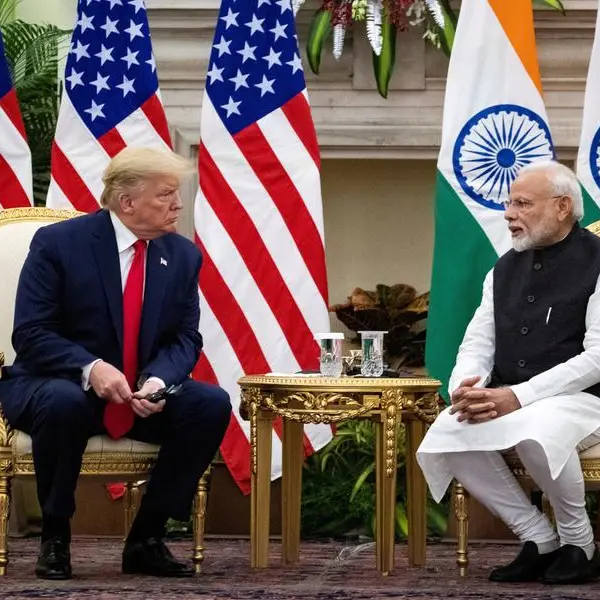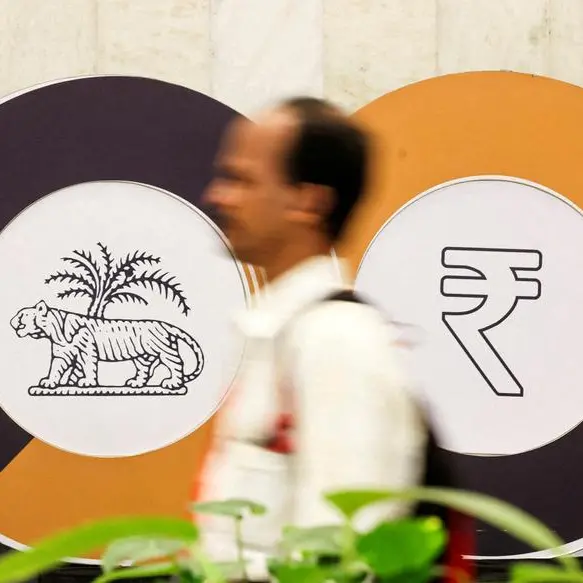PHOTO
Prominent Indian businessmen and professionals living in the UAE welcomed the interim Indian budget for 2024 presented by Finance Minister Nirmala Sitharaman on Thursday as a crucial blueprint for the upliftment of the masses through specific focus on the poor, farmers, youth and women in the nation’s impending transition to the third-largest world economy.
The budget, they argue, signals India's ambitious development goals, robust economic growth while offering a blend of opportunities to steer the economy towards a holistic growth.
Following are the excerpts from their comments:
Yusuff Ali MA, chairman of Lulu Group: “It is an interim budget as we do not expect major announcements on important initiatives. Key highlights of the budget would be enhancement of transport especially in the railway and aviation sector which will further upgrade connectivity. The budget proposal to set up five integrated aqua parks in the country will certainly benefit the fishermen community throughout the country. Apart from this, the budget gives more focus on the poor, farmers, and women empowerment as new measures are being implemented which will help India to become a global economic superpower in the coming years.”
G.P. Hinduja, chairman, Hinduja Group:
“The Interim Budget is both a time for reflection and visioning for the future while managing adroitly the present. Compliments to FM Nirmala Sitharaman for effectively achieving this. She articulated the achievements of the past decade and spelt out the broad roadmap to 2047 while maintaining the path of fiscal rectitude with fiscal deficit targeted at 5.1 per cent in FY 25 and down to 4.5 per cent in FY 26. The budget shunned any populist measures so often resorted to by the governments. But Bharat could certainly do more on its infrastructure CAPEX budgeting which increased nominally by 11 per cent. Some bold measures are needed to increase the annual FDI level of 60bn $ further. The banking and power sector reforms coupled with further impetus on digital infrastructure are imperative to Vikasit Bharat with improved sovereign rating. Overall, stability and continuity with judicious acceleration are the wheels deployed through this interim budget for taking off this flight. Now, it’s over until July 2024.”
PNC Menon, chairman of Sobha Group:
“As Prime Minister Narendra Modi said, this is a budget of creating India’s future, reflecting the aspirations of a young India. With a significant increase in the capital expenditure outlay to 11.1 per cent (Rs 11.11 trillion for FY 25), the budget propels India towards the ambitious target of becoming a $5 trillion economy by 2027. The extraordinary focus on R&D (research and development) spending is also a decisive step forward, the chief minister said in another social media post
The boost in religious and business tourism will lead to more employment in the hospitality sector. The construction of 20 million houses will help in the construction sector. Investment in sunrise sectors and deep tech will help establish more chip-making plants for which high-skilled employees are needed.”
Dr. Azad Moopen, founder & chairman, Aster DM Healthcare
“It is heartening to see that the Interim Union Budget focuses on the upliftment of the masses through specific focus on the poor, farmers, youth and women. The allocation of Rs. 1 trillion with 50-year interest free loans will encourage the start-up culture that India is now thriving upon, encouraging the youth of today to become entrepreneurs and focus on their growth as well as the growth of the nation.
“In healthcare we were hoping to see an increase in the GDP allocation of minimum 5.0 per cent for the sector, hopefully this will be addressed in the complete Budget to be announced in July this year, under the new government. We are glad that the government is considering adding more hospitals in all districts in the country, which is essential to meet the rising demand. We would recommend focusing on public-private partnerships (PPP) to address this. With all maternal and child healthcare to be brought under one- scheme, this will be essential. It is promising to hear that the government plans to open more medical colleges alongside existing hospital infrastructure. There is now an urgent need for comprehensive reform of medical education, to ensure that the medical professionals of tomorrow are trained in the latest medicine and techniques, like their western counterparts.
The strong impetus on immunisation of children under Mission Indradhanush and young girls for cervical cancer will go a long way in strengthening preventive care measures in the country and reduce the burden from communicable and non-communicable diseases.”
Paras Shahdadpuri, chairman, Nikai Group of Companies
"I am glad to see the dedicated focus in the Interim Budget 2024 economic agenda on four foundational pillars: 'Garib' (the impoverished), 'Mahilayen' (women), 'Yuva' (youth), and 'Annadata' (farmers). These pillars underscore a commitment to addressing the diverse needs and aspirations of these critical segments of society, creating a more inclusive and equitable economic landscape.
“The reference to the Direct Benefit Transfer (DBT) scheme stands out as a noteworthy element, illustrating a pragmatic and results-driven approach to financial management. This strategic financial move demonstrates fiscal responsibility and aligns with the government's broader goal of enhancing efficiency in welfare delivery mechanisms. The Finance Minister's optimism about the nation's future adds a positive tone to the budget presentation. The acknowledgement of India's youth with 'high aspirations, pride in its present, and hope and confidence for a bright future' reflects a vision that extends beyond immediate fiscal concerns, setting the stage for sustained economic growth. Furthermore, the articulated vision for 'all-round, inclusive development' reaffirms the government's commitment to holistic progress that transcends specific sectors. By aspiring to turn India into a developed nation by 2024, the government is signalling an ambitious agenda for comprehensive growth, encompassing economic, social, and infrastructural dimensions. I eagerly await the unveiling of detailed measures that will shape India's economic trajectory in the coming months. As the government navigates the delicate balance between fiscal prudence and targeted investments, businesses anticipate insights into policies that will catalyse growth, promote innovation, and create an enabling environment for entrepreneurial ventures."
Faizal Kottikollon, chairman of KEF Holdings
“The continued higher allocation to infrastructure bodes well from a growth perspective and may act as a catalyst for enhanced private capital expenditure. The impetus towards innovation with a corpus of Rs 1 trillion providing financing at low or nil interest rates and the announcement of a new scheme to strengthen deep tech in the defence sector will be key growth drivers. The emphasis on next-generation reforms, underscores a collective endeavor towards a prosperous future. I welcome the emphasis on clean energy initiatives like bio-manufacturing and compressed biogas blending. These measures will not only address climate concerns but also create exciting new opportunities in the green sector. Overall, Budget 2024 strikes a positive balance between continuity and progress, laying down a roadmap towards development, fostering innovation, and nurturing a sustainable future for our nation by 2047."
Thomas KV, chairman of Thomsun Group
"Indian finance minister decoded an integrated and equitable growth budget outlay encompassing significant social reforms. Keeping the fiscal consolidation target at 5.1 per cent will decrease the cost of borrowing for businesses and industries. This in turn will help stimulate economic growth, stabilize the economy, and reduce the risks of inflation.
The budget seeks to enhance economic growth value chain, promote sunrise sectors while providing impetus to urban & rural housing with mega infrastructure projection. India has risen in its global leadership by paving the way for world economies, setting new standards and establishing strong geo-political allies."
Dr. Ram Buxani, chairman, ITL Cosmos Group
“One could indeed feel a relaxed feeling on the face of Finance Minister Nirmala Sitharaman while announcing that she is keeping the status quo in Direct and Indirect taxes of last year. This is perhaps the first time in the history of 75 years that tax structure is untouched in the budget. This eases the job of tax payers and planners. But there is an obvious expectation of substantial Tax structure change when India gears up for the budget after the election. I feel commercial Real Estate is poised for development in a positive direction largely fueled by increasing digitization and technical advancements in various industries. This is perhaps the 4th consecutive year in Mrs. Nirmala Sitharaman’s 6th consecutive job where NRIs have no mention. According to the budget presentation, NRIs have disappeared from playing any economic role. This is very discouraging and should be seriously looked at. Reaching present state of affairs, India can’t forget the role played by NRIs – HNW, white collar as well as blue collar.
Shamlal Ahamed, MD-International Operations, Malabar Gold & Diamonds
“While the Union Budget for the upcoming fiscal year does not carry any landmark provisions, it does carry some welcome initiatives, particularly in the realm of infrastructure development. The government has mandated a significant spending allocation towards air and rail travel. Once implemented, this will be a major boost to connectivity, serving as a substantial catalyst to trade & tourism. The proposed Housing scheme for impoverished communities is also a great initiative, which aligns closely with Malabar Group’s ESG initiatives. We were expecting a deduction on gold import duty, which would have curtailed the parallel import of gold.”
Adeeb Ahamed, managing director, Lulu Financial Holdings
“In today's unveiling of the Indian budget, we witnessed the presentation of a strategic blueprint aimed at fostering economic resilience and growth, with a focus on inclusivity and sustainability. The government has outlined a visionary path that not only addresses the immediate needs of its citizens but also introduces a series of initiatives designed to facilitate and encourage India's ongoing development narrative. The Indian budget underscores a comprehensive package aimed at propelling the country towards sustainable growth and inclusive development. At its core, the budget lays a robust foundation for economic recovery, prioritizing sectors that are crucial for the nation's resilience and long-term prosperity.
“Firstly, the budget places significant emphasis on digital innovation and financial reforms, creating a golden opportunity by streamlining investment channels and introducing digital platforms for smoother financial transactions. This digital leap, combined with the liberalization of investment policies, is anticipated to enhance transparency and accessibility. Second, the budget's focus on healthcare, education, and infrastructure highlights sectors crucial for the nation's long-term development. The government's commitment to upgrading healthcare facilities and expanding access to quality education resonates with the aspirations of many. Additionally, the emphasis on infrastructure development, including roads and housing, promises not only economic benefits but also an improvement in the overall quality of life in India.
“In conclusion, the Indian budget presents a holistic and forward-looking approach, aligned with the government's vision for the nation's progress. It signals India's economic revival, offering a blend of opportunities to steer the economy towards sustained development. As we move forward, it will be imperative to closely monitor the implementation of these initiatives, ensuring that the potential benefits translate into tangible outcomes. The budget sets the stage for a promising future marked by shared prosperity and mutual growth.”
James Mathew, CEO & managing partner, UHY James
“2024 is election year and today’s interim budget reflected on the diverse development initiatives that have set the pace for the country to accelerate its way into a fuelled financial future. Key developments in the space of infrastructure, aviation, agriculture, fisheries, entrepreneurship & green investments will take up the spotlight in the Indian economy over the next few years. The commitment of capital expenditure outlay for infrastructure development and employment generation to be increased by 11.1 per cent to Rs.1.1 trillion constituting 3.4 per cent of the GDP marks India’s crystal clear approach in delivering on its promise to become a developed nation by 2047.”
Nazeer Veliyil, chairman, BorgRollsWarner Middle East
“The Interim Budget 2024 lays a strong foundation for building a prosperous and inclusive India in line with the vision of 'Viksit Bharat’ and resonates with the sentiment of empowerment for every section of society.
"It is a budget of inclusiveness, stressing continued growth with an 11 per cent increase on the capex. And it is also a budget that is showing fiscal prudence while setting the stage for the nations of 1.4 billion to emerge as the third largest global economy by 2027. In sum, the interim budget centers around infrastructure development across various sectors, aiming to enhance the livability index and assist in promoting homeownership"
Thumbay Moideen, founder president, Thumbay Group
“The interim budget outlines a promising roadmap in healthcare infrastructure, notably through the proposal to establish more medical colleges. This initiative not only boosts domestic healthcare but also boosts knowledge exchange between India and the UAE, potentially leading to collaborations and research partnerships. Additionally, increased funding for healthcare infrastructure development will open corridors for investment opportunities from countries like the UAE. These measures are expected to drive growth and investment between India and the UAE.”
Kamal Vachani, group director and partner at Al Maya Group
The government presented a well-balanced budget that addresses the needs and concerns of all sectors of the economy.
I believe that the budget 2024 is a step in the right direction towards achieving the country's economic growth and development goals. The announcement of a dedicated budget for post-harvest activities is a welcome move, as it will not only improve the overall efficiency of the sector but also create more job opportunities for rural communities. Additionally, the government's focus on promoting private investment in this area will lead to greater innovation and modernization in the agricultural sector.
"With India currently importing about 60 of its cooking oil, which amounts to over Rs1.5 trillion in a year, it is crucial to focus on increasing domestic production to reduce this dependency on imports. The need for research in the oilseed sector has been recognized for a long time, and it has played a critical role in the success of crops like mustard, groundnut, and sesame. I am optimistic about the impact of this budget on the Indian economy. The government's focus on development, coupled with measures to promote ease of doing business and consumption, will drive growth and create a favourable business environment. I am confident that this budget will pave the way for India's continued progress and development.”
Bharat Bhatia, founder and CEO of Conares
“The Indian Union Budget 2024 is commendable for its strategic vision and emphasis on economic growth. The proposed measures align with our expectations, particularly in bolstering the steel and manufacturing sector. The budget’s focus on infrastructure development is a positive catalyst for our industry, and we anticipate increased demand. The India-Middle East-Europe Economic Corridor in the budget presents exciting opportunities for global expansion. Additionally, the budget's commitment to fostering innovation and technology resonates with our mission for sustainable and advanced steel production. Overall, we view the budget as a constructive step towards fortifying the foundations of India's industrial landscape."
Abdul Jebbar, founder and group managing Director of Hotpack Global
"The interim Union Budget 2024 lays a robust foundation for economic resilience and growth, with a notable focus on industry and manufacturing. The increased capital expenditure, particularly in infrastructure projects related to railways, roads, and logistics, is a positive stride. The budget's inclusive approach, with provisions for startups and extended tax benefits, is aligned with fostering innovation and technology. The emphasis on the India-Middle East-Europe Economic Corridor (IMEC) as a strategic initiative holds promise for transforming trade dynamics and fostering economic development through enhanced connectivity. Overall, this budget echoes a commitment to industry-led progress and a sustainable economic future."
John Varghese, managing partner, HLB HAMT
"Honouring fiscal responsibility amidst economic challenges, the 2024 Indian Union Budget sets a visionary course for inclusive growth, governance, and performance. With a resilient commitment to economic well-being, the budget prioritizes national security and underscores the government's dedication to safeguarding the nation. The holistic approach spans diverse sectors, fostering societal development. Recognizing the pivotal role of technology and innovation, provisions for startups and research funds signify a dynamic business environment. Infrastructure development and the strategic India-Middle East-Europe Economic Corridor (IMEC) underscore a forward-looking economic vision, enhancing connectivity and global collaboration."
Aditya Sesh, founder and managing director of Basiz Fund Service Private Limited
“I think of this budget in two dimensions, one being political, which is most important given the election year, and much of the work done has been discussed. It focuses on performance rather than promises. One thing that struck me is that while free electricity has been discussed in some states, here it has been achieved with minimal impact on electricity-generating companies by utilizing solar rooftop resources, essentially providing up to 300 units of electricity to households. I think the economy is in very good shape. Capital markets are expected to rise, and India is looking very attractive in terms of growth. The P/E ratios are slightly premium, but that’s because the growth is good, and the inflation management targets are at the desired levels, around 6.0 per cent odd, matching the increases in GDP, so effectively, there would be no impact on real income.``
Sudhir Pai, CEO, Magicbricks
"Given its interim nature, the budget offered only a few announcements that impact real estate. Its commitment on advancing the "housing for all" vision stands out with provisions under the PM Awas Yojana and a focus to enhance economic, digital and social infrastructure. These strategic initiatives are poised to generate additional employment opportunities and foster a positive ripple effect on the real estate sector.
“From a supply perspective, tax breaks such as a reduction in custom duties or GST, would have been beneficial in accelerating new supply. In the current landscape where demand has surged to a decadal high along with a substantial increase in residential prices, such measures could have played a role in creating a balance and crafting a sustainable long term growth story.”
Copyright © 2022 Khaleej Times. All Rights Reserved. Provided by SyndiGate Media Inc. (Syndigate.info).





















